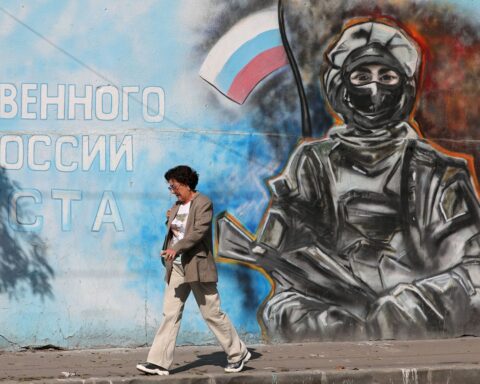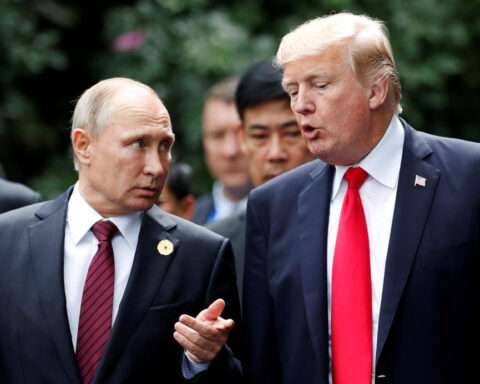Bloomberg – Brent oil pushed higher as European oil giant Shell Plc announced it will stop buying Russian crude and the International Energy Agency said it was disappointed in the actions producers have taken in the market so far.
Futures in London rose near $127 a barrel, while West Texas Intermediate also gained after settling at the highest level since 2008 on Monday. The surge in oil has helped push retail fuel prices higher with gasoline at a record in the U.S., according to the American Automobile Association, underscoring the inflationary impact of higher energy costs.
Shell said it will stop buying Russian crude on the spot market and will not renew its term contracts, unless directed by governments to do otherwise. It also said it will change its crude oil supply chain to remove Russian volumes, though this could take some weeks, and will lead to reduced throughput at some of its refineries.
U.S. lawmakers announced the outline of bipartisan legislation to bar Russian oil imports into the U.S., while European Union governments are divided about whether to join the action. TotalEnergies SE became the first big oil company to publicly say its traders will no longer buy Russian crude, though most buyers are already shunning its supplies. The head of the IEA said that the agency can release additional supplies to cool prices if it needs to, and that it was disappointed by the actions of producers to stabilize crude so far.

The huge surge in oil since war broke out has seen some of the main names on Wall Street lift their price forecasts. Goldman Sachs Group Inc. now sees Brent at $135 this year, up from $98 previously. UBS Group AG said it sees $125 as a soft cap for prices, but that they could reach as high as $150 in the case of a prolonged war. The IEA said it could release a “substantial amount” of stocks if needed and that there is a significant amount of spare production capacity available.
“We might get a few corrections on the way but ultimately this is headed way, way higher,” Amrita Sen, chief oil analyst at consultant Energy Aspects, said in a Bloomberg TV interview. “I would say you need at least $150 if not higher for a material slowdown in demand growth.”
OPEC Secretary General Mohammad Barkindo warned that the world doesn’t have sufficient oil-production capacity to replace Russia’s contribution to crude markets, according to remarks at CERAWeek by S&P Global in Houston. At the same event, Chevron Corp. Chief Executive Officer Mike Wirth said that there’s no evidence of physical oil or gas shortages yet.
Some cracks are starting to show across oil markets as soaring costs begin to bite. Plastic makers in Asia are reducing activity, while refiners in the region are considering cuts to processing. Freight rates have also surged, adding to increasing pressure on refiners that had just recovered from the pandemic.
Diesel remains the corner of the market that’s showing the most extreme tightness — particularly in Eurpoe. Traders are paying a premium of more than $100 a ton for ICE gasoil futures relative to the April contract, an unprecedented level. Crude benchmarks also remain heavily backwardated.






